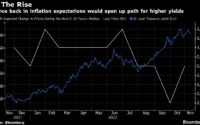S&P drops ESG scores from debt ratings amid scrutiny
Receive free ESG investing updates
We’ll send you a myFT Daily Digest email rounding up the latest ESG investing news every morning.
S&P Global has stopped handing out scores to corporate borrowers on ESG criteria, at a time of rising questions about their utility and political attacks on such metrics.
The debt rating agency has since 2021 published scores from one to five for a company’s exposure to each element of environmental, social and governance risks.
Payments company Visa, for example, had received a two for “E” and “S” and a three for “G”. FirstEnergy, an Ohio utility that has been charged with corruption, received a four score for “G”, S&P’s second-lowest grade.
Late last week S&P reversed course, saying that only text, not numerical scores, would comprise analysis of a company’s ESG matters.
“We have determined that the dedicated analytical narrative paragraphs in our credit rating reports are most effective at providing detail and transparency on ESG credit factors material to our rating analysis,” the rating agency said.
The U-turn puts S&P at odds with debt rating rival Moody’s, which still rates ESG criteria on a one to five scale.
S&P is influential, with debt ratings that can affect a company’s borrowing cost. As Republicans target Wall Street’s use of ESG more broadly, conservative state attorneys-general last year opened an investigation into S&P’s use of the factors.
Tom Lyon, a professor at University of Michigan’s business school who has studied ESG ratings, said the S&P move was “just the latest example of a company crumpling in the face of these Republican attacks”.
Their attacks have also overshadowed real concerns about ESG ratings sold by S&P and other financial firms, Lyon said. “They are not that reliable and they disagree.”
The move comes amid scepticism over ESG ratings from some investors. Marcus Moore, a portfolio manager for Osterweis in San Francisco, said he does not pay much attention to specific ESG credit scores from rating agencies and that the numbers should not be a deciding factor for investors.
“We will continue to read S&P’s reports and get a feel for what they are thinking about” on ESG, Moore said.
Andy Brenner, head of international fixed income at Natalliance Securities, said he agreed with S&P’s decision to back away from ESG scores. “[ESG] is very hard to measure. I think it’s an overrated concept,” he said.
S&P said its ESG credit indicators were not sustainability ratings or a standalone assessment of a company’s ESG performance.
“The ESG credit indicators were intended to illustrate and summarise the relevance of ESG credit factors on our rating analysis,” S&P said. “This update does not affect our ESG principles criteria or our research and commentary on ESG-related topics, including the influence that ESG factors can have on creditworthiness.”
By dropping the ESG ratings now, maybe S&P is saying “the ratings really are not that useful,” said David F. Larcker, a professor at Stanford’s graduate school of business. “Or maybe they are responding to pressure from attorneys-general and other people who are anti-ESG.”
Additional reporting by George Russell in Hong Kong and Harriet Clarfelt in New York
[ad_2]
Source link


